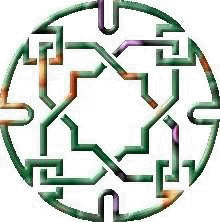


"A declaration in Arabic renaissance and enlightenment", Alttayeb Tyzini, the world of thought, no.3, v.29, 2001, Pp. 49- 73.
Review
Introduction:
In view of the current 'critical' situation of the Arabs we see that the search in 'a new enlightening project of Arabic renaissance' is a trial which posses its methodological and epistemological Justification form two essential conditions. First, an open methodology, or open methodological ways of approaching the problem. Second, an all encompassing critical discourse amongst those who work on the project, and even those who are deeply concerned with such a project, even if it were a practical Populist conscious. For as much the matter is concerned with a scientific endeavor, as much it is restrained by the knowledge of the different points of views of the whole, if possible, according to the contexts which define their political and Ideological plurality. Such a project is the duty of the whole not of a particular cultural elite. Consequently, this requires accomplishing a wide range of self-studies, sociological, philosophical, political, economical, anthropological, historical, and others. These studies will constitute the required search raw material, which leads to uncovering the nature of the collective research project.
In this paper, we will divide the topic into three parts. In the first, we will state historical and contemporary motives of proposing such a project. In the second, we will review the different Arabic positions form the problematic of the enlightenment and renaissance of the Arabic societies. The third will be devoted to presenting the basic elements of the perceived project. (P. 49-50).
1- The motives toward an Arabic Project for renaissance
Arabs are not a constant entity above history, nor are they an entity that is left outside history, rather they should develop their own historical consciousness. Hence, one of the essential motives of the project is the study of their historical presence whether in the pre-Islamic age or in 'the mediaeval Arab/Islamic civilization". Second, contemporary political, and economic critical situations, in addition to military defeat on 1967 expose the Arabic system, in the course of globalization, to the dangers of dismantling, which represents a strong motive to the proposed project. (P. 50-55)
2- The position from such a project from contemporary Arabic thought
Contemporary Arabic thought is widely disarrayed with respect to the question of the new renaissance project. This is, basically, due to differences in the Ideological positions, which is divided to six positions. The fundamentalists, whether based on religious or other basis, which exclude the idea of the project itself. Followers of the West, who do not belief in the 'Arabic identity', and hence, in a renaissance project. Combinatory functional structural view, in which we need only to borrow western systems while keeping our preserved Arabic identity, and hence, no need for a theoretical renaissance project. Structuralists and Postmodernists who advocate contradiction between the structure and history and call for epistemological break with Arabic history, hence, in this view such a project would have no meaning. Those who belief in 'the end of history' and the fall of ideology, such a banner isolates different cultures and keeps the status quo in the Arabic societies. Finally, Globalization and post-Zionism which concentrates on the globe as a market in which state sovereignty is diminished, and hence, renders the project to a marginal state. This call for the project, then, is directed against these different positions, which view the Arabic renaissance possibility as out of history. (P. 55-59)
3- Basic elements of the project
The project should be composed of three basic elements, a conceptual framework; a definite problematic; and political, economical, and social conditions of the Arabic societies as a pre-requisite for its success.
A- The conceptual framework should be based on a combination between the three central notions of modern Arabic thought, national freedom, revolution against traditional systems, and 'Nahda' (society advancement toward the state of modernity). This makes concepts such as 'self-consciousness', 'self-Identity', 'Historical roots and historical consciousness', 'freedom', 'rationality', 'rebuild of cultural elite' essential of the conceptual framework of the project. (59-66)
B- The central problematic can be defined in the tension between the resisting circumstances and the driving needs of the realities of contemporary Arabic societies. In this context the subconscious motives of the society, the openness and evolution of the society, the reaction against the Zionist challenge and injustice, are central in evaluating the realities of the current situation. (P. 66-68).
C- Political, economic and socio-cultural reforms are essential conditions for such a project. Economically, the Arabic area possess sufficient resources and hence capable of fulfilling such a condition. Politically, we should rely on fostering civil society in order to reach a sufficient political reform. Culturally, establishing modern values that establish equality, solidarity and tolerance. (P. 68-70).